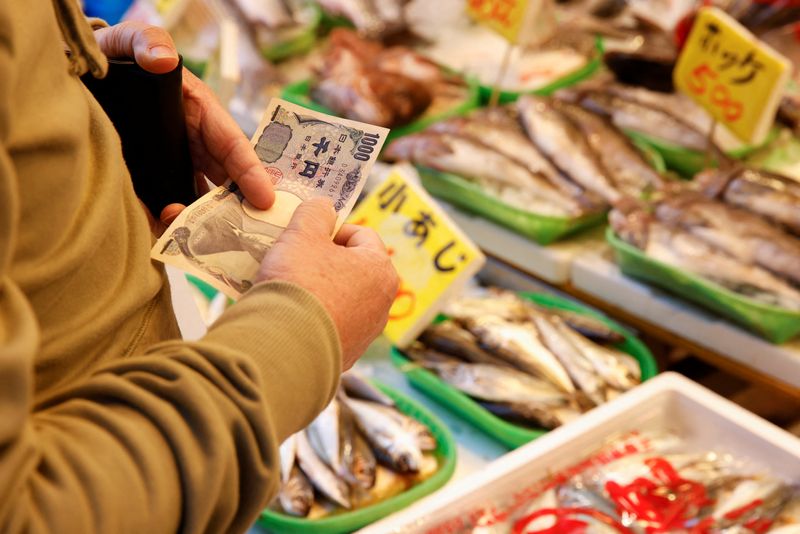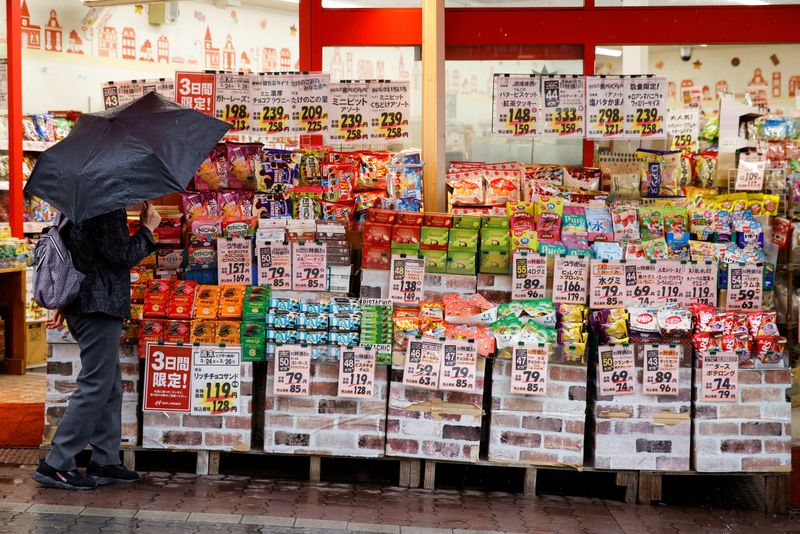By Leika Kihara
TOKYO (Reuters) -Japan's wholesale inflation accelerated for three straight months as companies continued to pass on rising raw material and labour costs, data showed on Wednesday, keeping the central bank under pressure to raise interest rates again.
The data for November comes ahead of the Bank of Japan's two-day policy meeting ending on Dec. 19, when some analysts expect it to raise short-term interest rates from the current 0.25%.
The corporate goods price index (CGPI), which measures the price companies charge each other for their goods and services, rose 3.7% last month from a year earlier, BOJ data showed, exceeding a median market forecast for a 3.4% gain and marking the fastest annual pace of increase since July 2023.
The increase, which followed a 3.6% gain in October, was due to higher prices for food, nonferrous metals and plastic goods reflecting rising commodity and labour costs. The index, at 124.3, extended a record high for the third straight month.
"We're seeing renewed inflationary pressure in domestic corporate goods prices," said Takeshi Minami, chief economist at Norinchukin Research Institute.
"While consumption lacks momentum, real wages are no longer falling much. Given building inflationary pressure, there's a good chance the BOJ could raise rates in December," he said.
Agricultural and fishery goods prices spiked 31% in November from year-before levels, after a 28.1% gain in October, due largely to the soaring price of rice, the data showed.
The yen-based import price index fell 1.2% in November, slower than a 2.2% drop in October, a sign the currency's rebound has not been strong enough to significantly push down the cost of importing raw material.
While the yen is off a three-decade low near 162 to the dollar hit in July, it has weakened to around 152 recently after touching a high near 141 in mid-September.
The data casts doubt on the BOJ's view that inflationary pressure from raw material imports will dissipate and ease the burden on households in a boost to consumption and the broader economy.
Wholesale price data is seen as a leading indicator of consumer inflation, which the central bank uses as a benchmark in setting monetary policy.

The BOJ ended a decade-long, radical stimulus programme in March and raised short-term interest rates to 0.25% in July on the view Japan was progressing towards sustainably achieving its 2% inflation target.
BOJ Governor Kazuo Ueda has signalled readiness to hike rates again in the near-term if the bank becomes more convinced that inflation will stay around 2% backed by solid consumption and wage growth.
